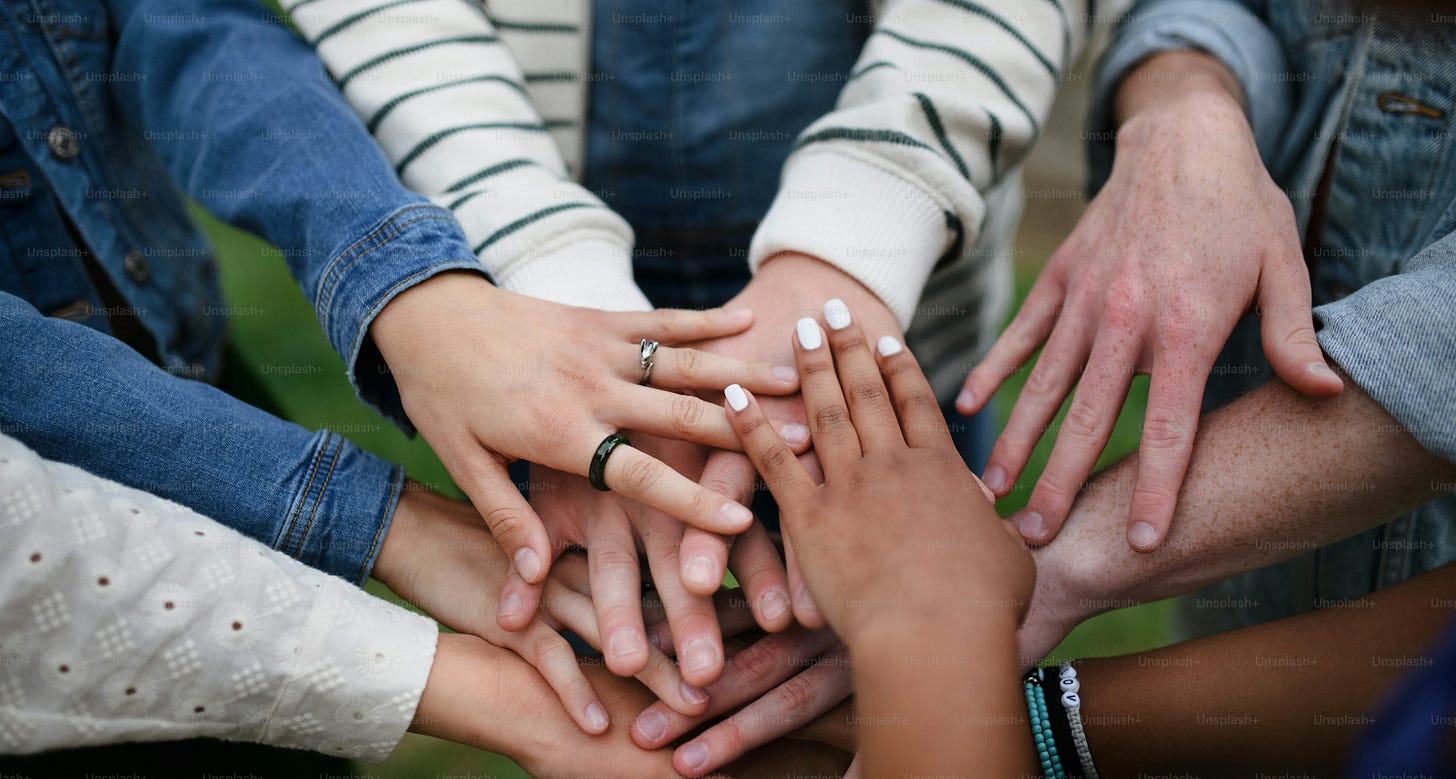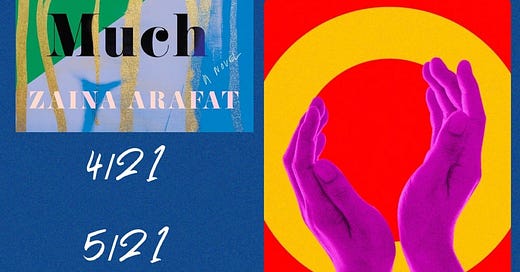CORRECTION: Tonight: Pain Baby Book Club reads Hala Alyan's The Moon That Turns You Back
Meditations on Community Praxis, Announcements, and Recommendations
Pain Baby Book Club, 6:30 pm ET - 7:30 pm ET via Zoom
Tonight is the first iteration of Pain Baby Book Club offered for free for all interested participants. We will discuss Hala Alyan’s The Moon That Turns You Back, Alyan’s most recent and most adventurous poetry collection. Her work explores Palestinian diasporic identity, migration and exile, struggles with infertility, and the chaos of trying to live and love in a world where your personhood is put into question.
All participants are welcome regardless of whether you’ve read the book. I will pick out 3-4 poems for us to look closely at together. This is an opportunity to come together and share thoughts and feelings about poetry to foster community and expand our understanding and discourse around Palestine and Literature. Sign up here. I’ll circulate a Zoom link to registered participants a few minutes before the meeting.
Have I been doing relationality wrong?
Anyone reading this Substack for the last couple of years is aware that as a disabled person frequently isolated and bound to my home, I am deeply conscious of the importance of building and nourishing community for our survival and connectedness at a time when the powers that be are ensuring that we suffer erasure and isolation. Until recently, I struggled to wrap my head around what it means to think of community as a practice outside of coming together around poetry and showing up where the need emerges within my social worlds.
Recently, I have joined a community through the East Side Institute that practices social therapeutics, a term I had never heard before this year.
I have been working for the past year for a company and organization, improvscience, that has opened my world up to the actual community practices and forms of organizing that practice the art of decolonizing our communities from American individualism to understand how growth and development come from relational play.

Over the last several years, I’ve been treating my healing journey as an individual burden to be borne largely in silence, relying on my community to vent and hold space rather than to engage in healing practices together as an integral practice for that healing. Social therapeutics looks at how apes are socialized to groom and care for one another at all times, co-regulating at every stage of their lives and their days. Our isolationist and individualist practices keep us inflamed and anxious in ways we have become so accustomed to and have so normalized that we are unable to see the damage, despite feeling its effects throughout our days. I come from a collectivist culture where generations of families live together, eat together, work together, and care for one another, so this makes a lot of sense to me.
I’ll write more about this as I read and study social therapeutics through the framework of decolonial disability practice. For now, imagine if we did all of our cooking, cleaning, errands, and work activities, let alone our hobbies, in company with our beloveds? What if we did our taxes and weekly budgets together? What if we planned meals together? Not just with our partners and immediate families, but with a wide variety of people in our social realities, so that we can also learn and build on how we do things by seeing each other’s processes?
Recommended Media:
Seven Queer, Trans, and Disabled Creators Fighting for a More Accessible World
Poetry Capsule from Split This Rock: Joys in Deviation: Neurodivergent Poetry with heidi andrea restrepo rhodes
Recommended Poems:
“Etymology” of Borders by Jaz Sufi
“Three Bad Survivors”: Three Poems by Kristen Lueke
“High Stakes” by Yesenia Montilla
Recommended Music:
Beloved Basharat C. turned me onto Young the Giant this week and I’m stunned I was not aware of this beautiful work before. This is a new release that’s lovely to sway to over a morning coffee:
Until next time!





Love these thoughts! I had a childhood which encouraged me and dissuaded me from being silent at the same time. It's been a learning curve untangling those contradictions. Because above all, communication is important and key to living and interacting together.